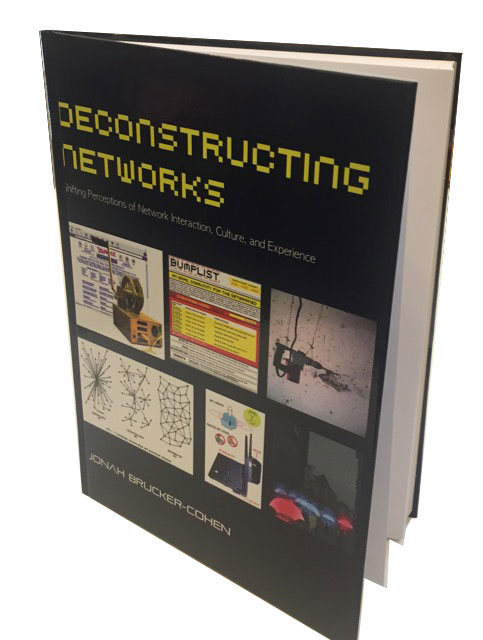
Publication Date: 2010
Available for Purchase from Lulu Press
Digital version coming soon on iBooks
Description
The work presented in this book examines aspects of the larger theme of the rapid introduction of technology into mainstream culture and the media. Specifically, I examine and deconstruct the social effect of networking and communications systems, particularly the rules and protocols they exhibit to bring about these relationships and the integration of networks into the greater population within the last 15 to 20 years. I accomplish this by presenting several projects I have created that provoke and challenge these systems in such a way as to point toward vulnerabilities in these methods of interaction and to propose alternative forms in which they could be manifested. Overall, the projects I present in this publication challenge existing methods of interaction with online systems and the social relationships they both support and perpetuate. When examining the depth of work presented in this book, my intent was to make a case that the rapid adoption of technology into mainstream western culture has begun to infringe upon our understanding of how and why these systems exist. This book begins by defining the particular contexts of this exploration into networks and networked interaction, from the experience of interacting with networks, to interactions within online communities, to ownership issues of public wireless space and finally to the importance of creating context displacements within these environments. From this point, I outline the social and technical contexts of networks, from their integration into popular culture and dispersal in public spaces.
![]()





